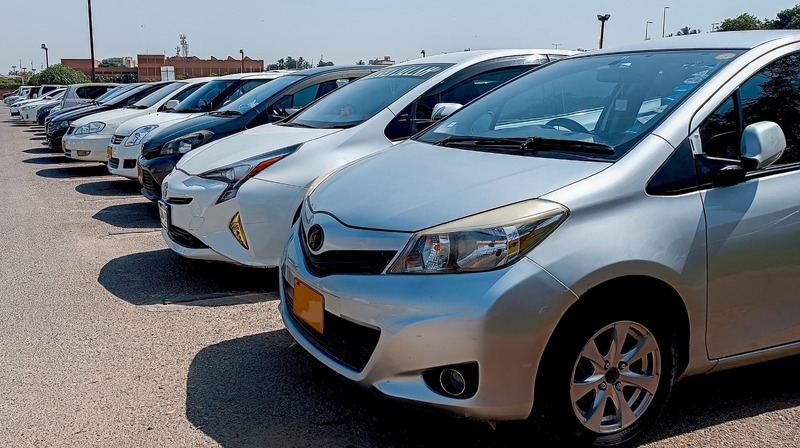ISLAMABAD: Pakistan’s auto manufacturing industry — a sector that contributes 2 percent to the national GDP, sustains 2.5 million direct jobs, and supports nearly 5 million livelihoods across its vast vendor and dealership network — is warning that the continued policy of encouraging import of used cars may destabilise one of the country’s most important industrial pillars.
In FY25 alone, the automotive sector paid Rs 700 billion in taxes, amounting to about 6 percent of the total national revenue, and has attracted an estimated USD 5 billion in foreign direct investment (FDI) over the past two decades. Through localization efforts, the industry also saves about USD 150 million annually in import substitution.
Despite these contributions, the sector finds itself at the centre of the government’s latest tax and tariff overhaul, shaped by Pakistan’s commitment to the International Monetary Fund (IMF).
Facing economic constraints and post-flood disruptions, Pakistan recently agreed to a revised tax collection target of Rs 13.981 trillion, alongside goals for 3.5 percent GDP growth and an 11 percent tax-to-GDP ratio. Easing import of used cars is being seen as a way to collect revenue quickly and already some steps have been taken in budget 2025-26 to facilitate that.
Industry representatives caution that this approach could have damaging long-term consequences. They say that during just the first eight months of FY24, the influx of used vehicles resulted in a Rs 45 billion revenue loss for local manufacturers, pushing companies to scale down production, reduce shifts, and brace for possible layoffs. The sector fears a repeat of earlier cycles when inconsistent policies and unchecked used-car imports weakened domestic capacity.
The auto industry’s historical context illustrates this concern. In the 1980s, when first car manufacturing plant was established its Karachi, the company agreed to progressively localize production by assembling vehicles from CKD (completely knocked down) kits.
However, frequent policy relaxations, shifting tariff regimes, and rising demand for imported used vehicles hampered localization targets and discouraged parts manufacturing. Over time, Pakistan became a major market for used cars, undermining the scale needed for competitive domestic production.
Today, industry officials argue that sudden liberalization of used-car imports would once again place local manufacturing at risk. They warn that short-term revenue gains could come at the cost of long-term industrial growth, job security, and investor confidence. With the government preparing the new Auto Policy 2026–31, manufacturers say the focus should be on strengthening tax administration, closing leakages, and supporting local production rather than opting for punitive or abrupt policy measures.
They emphasize that a stable, predictable policy environment is essential for Pakistan to move toward exporting vehicles rather than relying excessively on imported second-hand cars. As one of the country’s largest industrial contributors, the auto sector insists that its growth is aligned with national economic interests — and that protecting it is crucial at a time when Pakistan needs sustainable expansion, not short-term fixes.
Copyright Business Recorder, 2025


